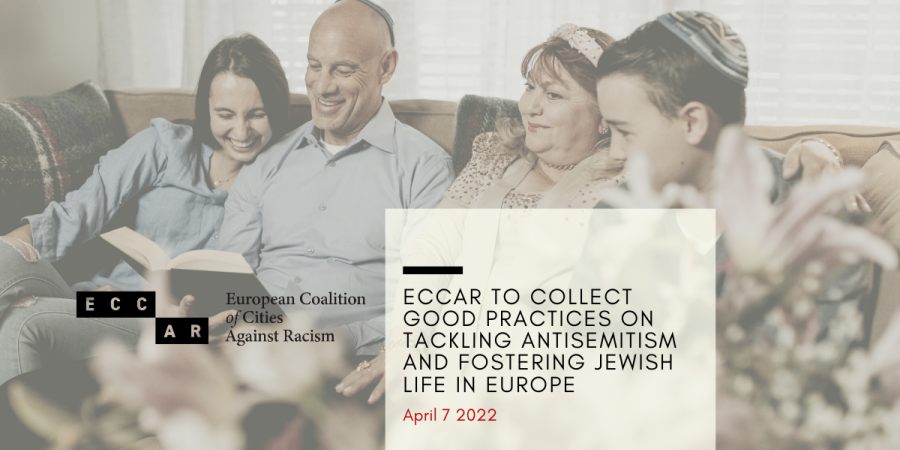
A new ECCAR project funded by the European Commission aims to collect best practice initiatives on combating antisemitism and fostering Jewish life on a local level
Antisemitism is on the rise, in Europe and worldwide. A survey conducted by the European Fundamental Rights Agency (FRA) found that nine out of ten Jews consider that antisemitism has increased in their country and 44% of young Jewish Europeans have experienced antisemitic harassment. Facing these facts, the development of concrete approaches in fighting antisemitism on a local European level is indispensable.
Therefore the ECCAR Office at the Office of Equal Opportunities of the City of Heidelberg will collect for the first time local best practice examples from various European countries in order to develop recommendations how local European governments can take action against antisemitism and foster Jewish life in in their capacities as democratic institutions, rule-makers, employers, service providers and public contractors. Within the framework of the project ECCAR will collaborate with the Working Group on Antisemitism that was launched on the initiative of the city of Dortmund in February 2022 and CEJI – A Jewish Contribution to an Inclusive Europe. The project follows the first-ever EU strategy on combating antisemitism and fostering Jewish life that was presented by the European Commission in October 2021 and is funded by the European Commission with around 60.000 euro.
“Jewish Europeans face antisemitism in their daily lives and actions on city and municipality level can change that. I am therefore pleased to see the launch of this important initiative led by European Coalition of Cities against Racism (ECCAR) together with CEJI (A Jewish Contribution to an Inclusive Europe), to collect good practices on combating antisemitism and fostering Jewish life at local level. This will be followed by trainings for civil servants and social workers. ” emphasizes Katharina von Schnurbein, European Commission Coordinator on combatting Antisemitism.
Following up on the “handbook for the practical use of the IHRA working definition of antisemitism” practical capacity building will be also be addressed through local training sessions to civil servants, social workers and other stakeholders in three different cities. The trainings will take place in cities of different countries and will be adapted to the individual needs of the respective city. A cooperation with the local Jewish communities should be realized where possible.
ECCAR Vice President Danijel Cubelic sees a great gain for European municipalities through the exchange: "We want to help local initiatives find concrete answers against antisemitism on the ground – and support them in taking responsibility in this area." The first project results will be presented in December 2022.
For more information, you can contact us at antisemitism@eccar.info.
